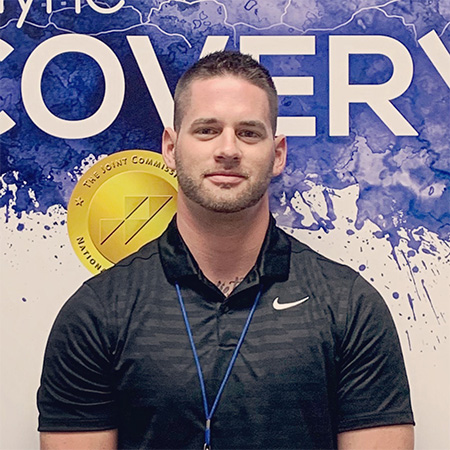It can be hard when a loved one is struggling with addiction.
When someone is struggling, you will most likely feel a strong urge to help them in any way you can. However, it is important to understand how you can help or potentially enable your loved one.
In layman’s terms, enabling is doing things for your loved one that allows them to continue with their addiction without experiencing the consequences of their actions. When you help a loved one, you are acting as a kind of guide so that they can work their way toward recovery.
This post will go over some common enabling behaviors and how you can replace them with more supportive actions so that your loved one can have a higher chance of reaching sobriety.
Read on to learn more!

What Are Some Examples of Enabling Actions?
A big enabling factor is making excuses. Does your addicted loved one tend to fail in maintaining their responsibilities? Do you find yourself cleaning up the messes they cause?
Let’s say that your loved one is always late to work and never attends family gatherings. You start to lie and make excuses for their negative behavior in an effort to cover up their substance abuse. At the moment, this may seem like you are taking control of the situation, but really you are enabling your loved one’s addiction by preventing them from facing the consequences of their actions.
The second enabling factor is ignoring the signs of addiction. Many addicts like to use their substances behind closed doors rather than in plain sight. Like any other kind of secrecy, this can lead to suspicious behavior that can be a clear indicator that something is wrong.
Suspicious behavior can include:
- Sudden changes to their daily routine, like staying out more often than they would
- Neglecting relationships with family and friends
- Problems at work or school
- Quick mood swings

Many enablers might ignore these warning signs as a way to protect their pride and keep away from the hard truth. However, if you pretend like you don’t see the signs and think that their negative behaviors will somehow magically change one day, this can passively encourage your addicted loved one to continue their substance abuse.
Additionally, it’s possible that your passive approach could make your loved one feel more isolated, leading to hesitancy in reaching out for help.
The third enabling factor is when you help with their expenses. Almost everyone understands that a majority of an addict’s money is spent on drugs or alcohol. You may not realize it, but paying for your loved one’s bills can actually enable them to continue their addiction.
No one wants to see their loved one homeless, but as hard as it can be, you need to stop lending them money so that they can be held accountable for their actions.
The fourth enabling factor is accepting your addicted loved one’s lies and excuses. If you know something is wrong, but you keep accepting the same excuse they use over and over again, this is considered enabling behavior.
Enabling behavior is usually done because someone is afraid of confrontation and the repercussions it may have on the relationship. Because of this, you might think it’s easier to accept the lies so you can go about your day. Enablers usually have some sort of codependent quality to their personality, meaning they strive to please others and typically have some sort of fear of being alone.
The final enabling factor is when you tend to your addicted loved one’s needs more than your own. There’s a reason why you need to love yourself first before you start showing love to someone else. If you can’t help yourself, then you will have a harder time helping others.
Addiction is a family disease. It can take a serious toll on your mental health even if you aren’t in the middle of it all. If your addicted loved one constantly watches you put their needs before your own, they will never learn how to stand on their own two feet.
What Are Some Examples of Helping?
One of the first things you should do is get educated about addiction. Read online articles (like this one!) and books, and talk with others about the things you have been experiencing. You can also attend family support groups to hear about other people’s experiences and learn more about the disease through them.
The second thing you can do is help your loved one find the right treatment program. They may not want help right away, but this doesn’t mean you can’t prepare for the future.
Search for rehab centers in your area, and check that the costs of the ones you’ve found are affordable for you and align with your insurance. You should also think about if your loved one will benefit from a facility that offers a wide range of care like detox, rehab, and sober living.
Don’t forget that you can’t force your loved one to go to treatment. They need to be the one that makes the call for themselves. If they do opt for treatment, Fort Wayne Recovery offers many kinds of treatment plans that cater to all kinds of people. Give us a call if you’re interested.
The third thing you can do is set and reinforce boundaries. Your loved one may have spent years of getting through life by lying and making excuses. Unless they are faced with the consequences, they aren’t likely to change their actions.
Set boundaries so you can distance yourself from the addiction and give yourself time to focus on yourself. Maybe a boundary is that you tell your spouse that you don’t want them drinking around you or your kids. Healthy boundaries aren’t meant to control your loved one. They are meant to control your environment and keep you protected.
If a boundary is crossed, then you must reinforce it. Let your loved one know how you feel and that they are not welcomed into your house until they are sober. Stand firm, and don’t let their lies and manipulation get ahold of you.
The fourth thing you can do is utilize healthy communication. Healthy communication means listening to the other person. If your loved one confides in you, it’s important that you listen to them without any judgment or interruption. If you are patient and compassionate, then your loved one is more likely to come to you when they are ready for treatment.
You should also focus on the positives while you communicate, but make sure you’re still conveying how you feel. Perhaps your partner is going out to drink with work friends before they tend to your needs. Instead of lashing out with your words, let them know how you feel when they come home late or drunk. Tell them you love spending time with them and that you want to plan some one-on-one time with them soon.
The final thing you can do to help is practice self-care and engage in your own recovery. It’s easy to let all of your time go towards helping your loved one with their addiction. Make sure you’re checking in with yourself while getting proper sleep and eating nutritious foods. It doesn’t matter how long you take, but take some time each day to unwind and do an activity that brings you joy. This can significantly improve your physical and mental health.
As you work on your own recovery, try joining a support group or setting up therapy sessions so you can unpack your feelings with a licensed therapist.
If you realize you’re being an enabler, it’s not too late to change the role you play for your addicted loved one. By following these tips above, you can rid yourself of any enabling behavior and become a more supportive, helpful person. As you and your loved one work through this process, don’t forget to let them know you love them and that you will be with them every step of the way.

Your Road to Recovery Starts Now.
Give us a call or send us an email and an admissions counselor will be in touch to answer all of your questions.
310 E Dupont Rd, Fort Wayne, IN
Your Road to Recovery Starts Now.
Give us a call or send us an email and an admissions counselor will be in touch to answer all of your questions.
310 E Dupont Rd, Fort Wayne, IN







